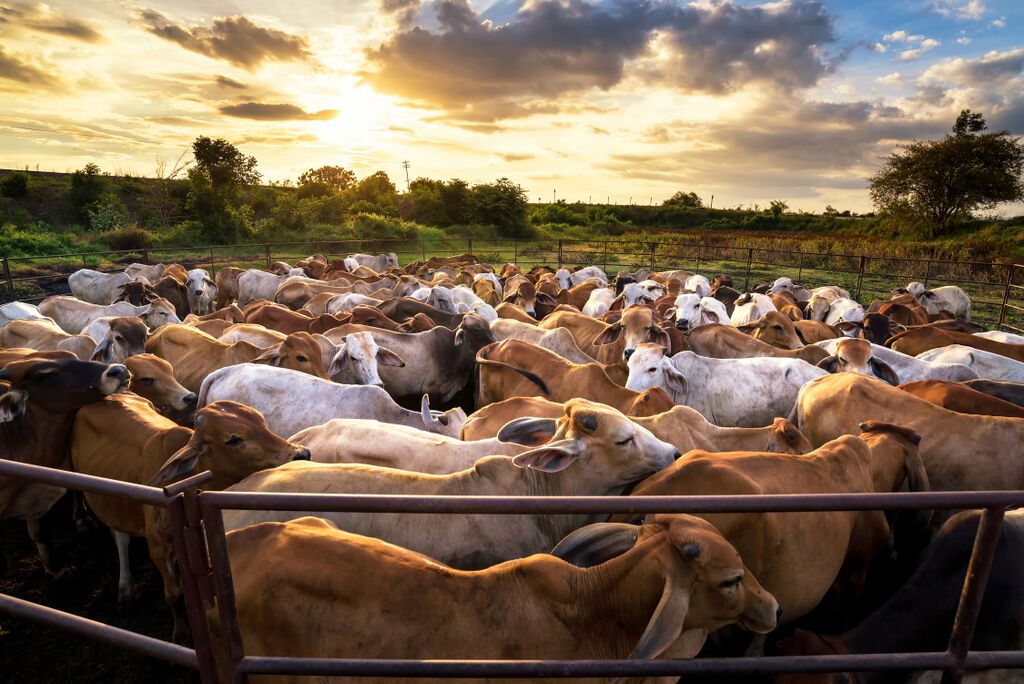
There are three big environmental issues with the production of meat - feed sourcing, manure processing, and climate change.
Raising meat takes vast quantities of feed. Millions of acres have been plowed over for large, monoculture crop fields dedicated to feeding livestock. Deforestation for agriculture is a problem in South America, but the Midwest is losing its native prairies and grasslands for farming. Converting natural habitats to agricultural fields releases carbon pollution, contributing to climate change. These crop fields are treated with toxic chemicals and doused in fertilizers, usually in higher quantities than the plants can use, leaving all the excess to runoff into surrounding waterways. If it’s not being sprayed onto fields, manure is typically stored in open lagoons that are susceptible to overflow during flooding or leakage due to faults. This releases harmful substances like antibiotics, bacteria, pesticides, and heavy metals into the surrounding environment. As the manure decomposes it releases emissions including methane, ammonia, and carbon dioxide which further contribute to climate change. On top of all of this, livestock emit methane (burps) during digestion and further emissions are released during the processing and transportation of the animals.
The entire supply chain of the meat industry contributes to an array of environmental issues affecting climate change and our water quality.
So what can we do?
We can demand that corporate agriculture implement the policies needed for a sustainable supply chain AND we can influence their customers – grocery stores, restaurants, and food service operations – to implement policies within their own supply chains to only source sustainable products.
Supply Chain Implementations
- Sustainable Feed Sourcing
- Raise all meat on feed from suppliers verifiably implementing practices to prevent agricultural run-off pollution, soil erosion, and native ecosystem clearance across their supply chain.
- Enrollment in nutrient optimization plan to prevent excess fertilizer application
- Implementation of cover crops and conservation tillage to protect soil health and reduce run-off
- Policy against clearing native ecosystems
- Incorporation and support of diverse crop rotations to improve soil health
- Responsible Manure Management
- Provide centralized processing facilities to process manure generated
- Policy against placement of new or expansion of CAFOs in watersheds already classified as “impaired” from nutrient pollution
- Greenhouse Gas Emissions Reductions
- Time-bound goals to reduce emissions across supply chain
- Require meat suppliers to reduce emissions from direct and contract suppliers as well as feed production